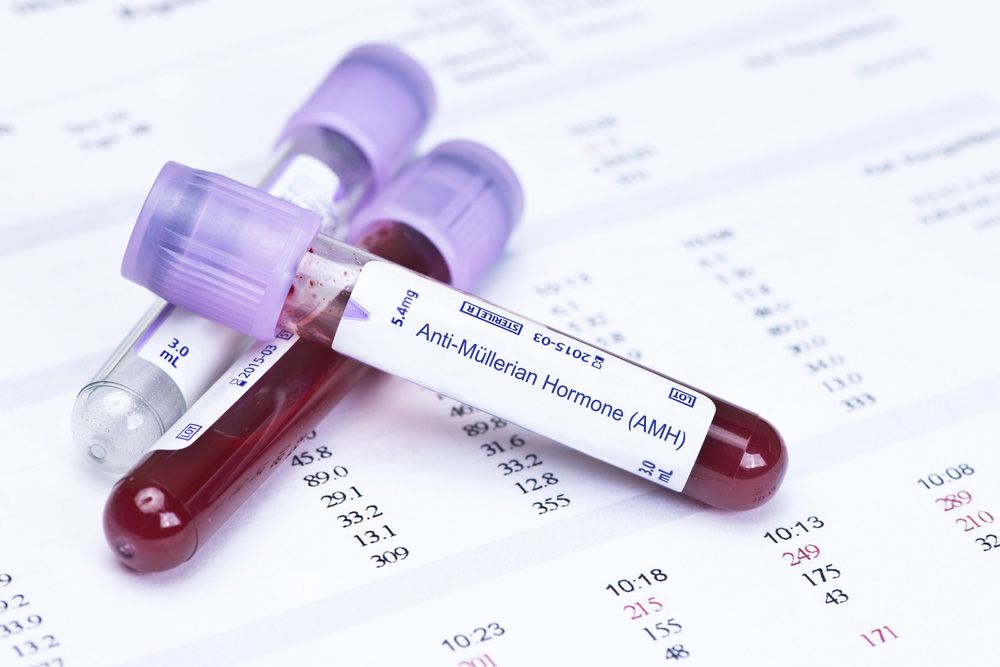Blood Tests Throughout IVF Treatment
 IVF, or in vitro fertilization, is an assisted reproductive treatment that oversees all stages of conception. This procedure allows Dr. Sonja Kristiansen to address a full range of infertility problems. The advanced techniques used throughout IVF treatment offer those who are struggling with fertility a significantly higher chance of becoming pregnant.
IVF, or in vitro fertilization, is an assisted reproductive treatment that oversees all stages of conception. This procedure allows Dr. Sonja Kristiansen to address a full range of infertility problems. The advanced techniques used throughout IVF treatment offer those who are struggling with fertility a significantly higher chance of becoming pregnant.
Throughout the IVF process, we rely on numerous techniques and technologies to maximize the chance of a successful pregnancy. Blood tests are one important aspect of IVF treatment. Many patients have questions about blood tests and IVF, and the role they play in treatment at our Houston, TX fertility center.
Here, we go over the importance of blood tests throughout IVF, as well as outline when blood tests are most likely to take place during the IVF process.
What Do Blood Tests Tell Us?
It’s no secret that many people aren’t exactly fans of needles. As a result, blood tests may be one component of IVF treatment that can be stressful for patients.
Blood tests are the best way for Dr. Kristiansen to monitor a patient’s hormone levels. During different stages of IVF, we will want to achieve certain hormone levels. If we are able to obtain the levels we desire, the chances of conception will be even greater. Although fertility drugs are used to achieve these levels, blood tests are the only way to confirm if they are working, or if medication adjustments need to be made.
Blood Work Schedule
To maximize the chance of IVF success, blood tests will be used several times throughout the treatment process. Below, we go over the stages of IVF treatment that are most reliant on blood testing:
- Prior to the start of IVF treatment: Patients can expect to undergo their first blood test before IVF treatment even begins. Immediately prior to starting IVF treatment (typically around day two or three of the woman’s menstrual cycle), we take blood to assess the level of follicle stimulating hormone, or FSH, in the patient's system. This helps Dr. Kristiansen predict the number and quality of a woman’s eggs so that she can plan IVF treatment accordingly.
- Throughout ovarian stimulation: During ovarian stimulation, which is the first stage of IVF treatment, fertility drugs will be used to encourage the growth of multiple mature eggs. Throughout this stage of treatment, patients will periodically undergo blood tests and ultrasounds. These tests allow Dr. Kristiansen to monitor egg growth to ensure that stimulation is successful, as well as to plan when the eggs should be retrieved.
- After embryo transfer: Embryo transfer is the final stage of IVF treatment. During this procedure, an embryo (or embryos) is transferred directly into the woman’s uterus. If treatment is a success, the embryo will attach to the uterine lining and the woman will become pregnant. Many patients are eager to take a pregnancy test following embryo transfer, but at-home tests can provide false results if taken too soon. A blood test is the only reliable way to confirm if a patient is pregnant. This blood test will typically be performed 11 or 12 days after the embryo transfer.
Contact Us
IVF has helped many patients experience the joys of pregnancy and parenthood. If you are struggling to become pregnant and would like to find out if in vitro fertilization is right for you, contact us at your earliest convenience. Dr. Sonja Kristiansen looks forward to meeting you and discussing our comprehensive range of fertility treatments. You can reach our caring staff by calling (713) 862-6181.


